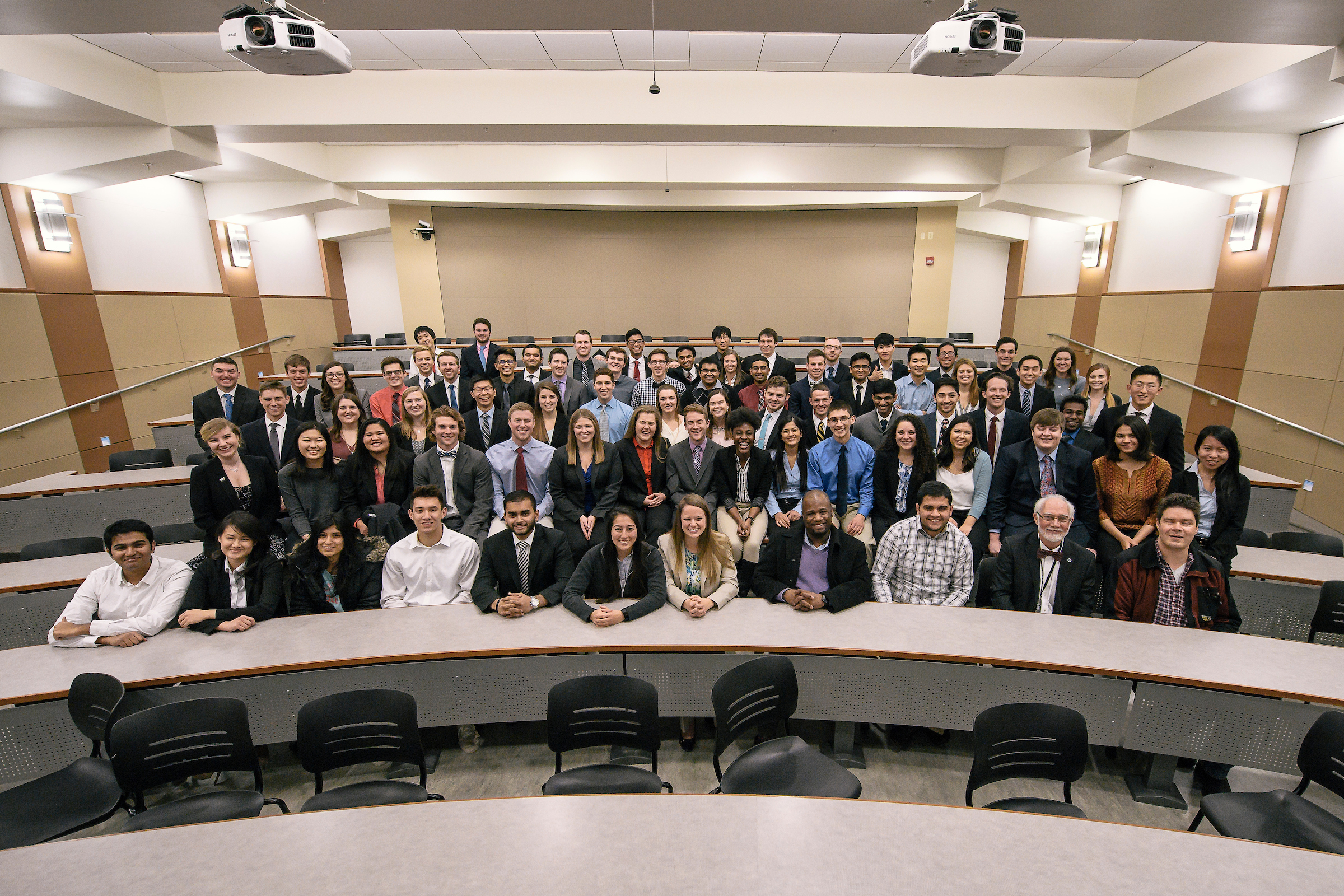Senior Design Mission
Our mission is build students’ engineering skills and ability to solve important clinical needs through the development of translatable medical devices and systems. We accomplish this best through ongoing collaborations with clinical and industry professionals for project ideas, resources, and team mentoring.
Design Course Sequence
Our senior design projects course offered each fall semester is the capstone course in our engineering design process. Our approach to teaching engineering design begins in the second year of our biomedical engineering program with several projects that teach design ideation and testing as components of technical biomedical engineering core courses. The full ideation stage for senior design projects begins in the spring semester of the third year of the program when junior level students gather many ideas from interviews with clinical professionals and visits to clinical settings both locally and internationally. In this course, faculty members and external mentors guide student teams through developing a product development proposal (PDP) for their senior design projects. In the summer, students entering their fourth year (seniors) select from the final list of approved projects one project team that best meets their career interests and skills. We create even more diverse project teams by inviting students from other engineering schools such as mechanical, electrical, materials, etc. to participate.
In senior design, the students develop and test their prototypes toward verification and validation. During this semester teams create a design history file (DHF) to successfully document the development of their device or system and demonstrate that their solution effectively addresses real patient, clinical, and health-care system needs. We also offer an optional course in the spring of the fourth year in which senior design teams can further develop their projects with the goal of translating them into national design competition applications, business plan competitions, and patent applications. These translation teams often include additional students and mentors with expertise to support the comprehensive and rigorous development of award-wining design projects.
 Partnerships are Important
Partnerships are Important
Collaborations and partnerships are a vital part of our program. Our partners contribute by providing clinically-relevant project ideas, clinical or industry mentoring of multidisciplinary teams, and material support and sponsorship. If you have a project idea, would like to mentor or sponsor one of our teams, or support senior design projects in any way please use the links on the left to reach out to us! Our students greatly appreciate the opportunity to learn from and work with outstanding professionals in the biomedical field to help strengthen and validate their engineering design solutions.
Resources for Training
Seniors obtain specialized training in a host of engineering skills such as computer-aided design (CAD), machining and manufacturing, data processing, and more. The use of these skills and techniques to translate designs to functional, user-friendly prototypes is a critical component of our senior design experience.
